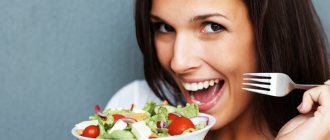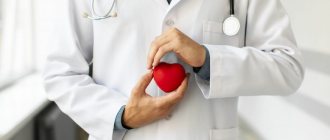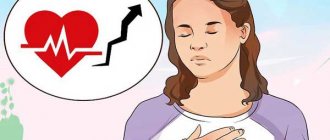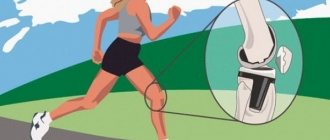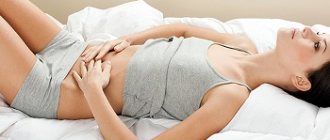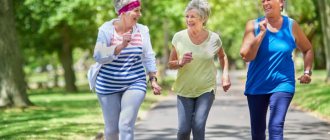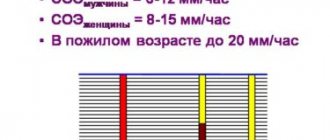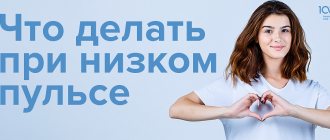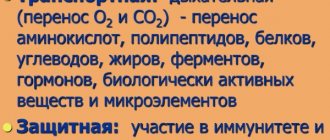Tachycardia after eating is not considered normal. This symptom complex is manifested by increased heart rate, pain in the chest, shortness of breath and increased sweating. If these signs occur only against the background of overeating, the first step is to reduce the portions consumed. However, an increase in heart rate even when eating light food should already be a reason for urgent consultation with a doctor. This type of tachycardia may indicate serious pathologies of the cardiovascular system, endocrine glands, and other organs.
Causes of increased heart rate after eating
The simplest cause of tachycardia after eating is uncontrolled consumption of large portions. In this case, the stomach becomes full and puts increased pressure on the diaphragm, which reflexively causes an increase in heart rate. The symptom often occurs when eating fatty, fried foods, flour products and sweets. However, the acceleration of the pulse in this case is not accompanied by additional symptoms of tachycardia and disappears after a few hours. A more dangerous condition is when symptoms develop even when eating small portions of food.
The exact cause of the pathology can only be determined based on the results of a comprehensive examination. As a result of ultrasound, ECG, blood tests and other tests, a number of dangerous diseases can be identified.
The causes of tachycardia after eating can be:
- overweight;
- chronic diseases of the cardiovascular system (ischemia, arterial hypertension, vegetative-vascular dystonia);
- history of myocardial infarction;
- unhealthy diet with a predominance of fatty foods in the diet;
- undergone gastric resection (removal) surgery - the food lump enters directly into the small intestine, which is accompanied by a sharp deterioration in well-being;
- malfunctions of the thyroid gland - they can cause heart rhythm disturbances;
- anemia - lack of oxygen in tissues provokes an increase in heart rate so that blood is distributed faster throughout the body;
- disorders of the nervous system - in some cases it is enough to take a sedative on a natural basis.
REFERENCE! It is important to immediately determine if tachycardia occurs simultaneously with taking certain medications. It is an adverse reaction of the body to the components of the drugs and appears some time after the start of the course of treatment.
Often and little by little
Lately, nutritionists have been advising eating little and often to avoid stress on the body: when digesting a hearty meal, the body secretes insulin, sometimes in large quantities, and this can ultimately lead to the development of insulin resistance and diabetes.
They say following this advice is especially important in the afternoon, when glucose and insulin levels peak higher and your metabolic rate drops. This advice is based on the results of studies conducted on small animals, as well as data from a few and short-term experiments in humans. The groundbreaking study - which changed the minds of all doctors and nutritionists - was published more than 30 years ago in the prestigious New England Journal of Medicine.
In the study, participants were given the same food in the same quantities per day, but in the first two weeks they received it throughout the day in the form of 17 small meals. After the break, the same amount of the same food was divided into three servings. The experimenter found that in the group that ate small meals, blood insulin levels decreased by 27% and a stress marker (cortisol) decreased by 20%. This is all very impressive until you realize that this famous study only had seven participants, so the results may well be due to chance and definitely should not be generalized to all people and all dietary needs.
Symptoms
Normally, a person's pulse rate is 60-80 beats per minute. This indicator may vary depending on the physiological state of the person. It also increases after active exercise, stress or fear. An increase in heart rate after eating is not considered a normal condition and requires more detailed diagnosis.
Often the pulse accelerates due to overeating - the patient should control portion size
Tachycardia is characterized by a rapid heart rate - it can be 90-100 beats per minute or more. However, the patient's condition is aggravated by additional clinical signs that significantly worsen overall health. Thus, tachycardia may be accompanied by a dull, pressing pain in the chest and a feeling of anxiety. The patient also complains of a feeling of nausea, the appearance of a characteristic lump in the throat, as well as dizziness. In some cases, loss of consciousness may occur due to rapid heartbeat.
There are several clinical forms of tachycardia:
- paroxysmal - often accompanied by swelling and various disturbances of the heart;
- sinus - attacks occur quickly and stop abruptly;
- supraventricular paroxysmal is a dangerous type, since attacks develop against the background of an already disturbed heart rhythm.
It is believed that emergency care is needed for a person when the heart rate increases to 120 beats per minute. However, this indicator is individual. If at rest the pulse is 90 beats and this does not affect a person’s well-being, then if it increases to 120 his condition will not worsen. The condition can be aggravated, including against the background of constant overeating. If your pulse quickens after eating, it is recommended that you first consider proper nutrition and then consult a doctor.
Heartbeat in the morning
Patients often complain of rapid heartbeat in the morning. This condition is directly related to neuroses. Tachycardia upon awakening is the main symptom of hypochondriacal disorders. Sometimes noted:
- interrupted and restless sleep;
- painful psychogenic sinus tachycardia;
- fear of death.
To stop the manifestations, antidepressants and tranquilizers are added to the drugs aimed at stabilizing the work of the heart muscle.
In addition to nervous disorders, tachycardia upon awakening is associated with VSD. To improve the condition, you should:
- normalize sleep patterns;
- wake up calmly, get up without sudden movements;
- do light exercises in bed for 5-10 minutes;
- sleep at least 6 hours;
- Ventilate the room regularly.
First aid methods
If after eating your health suddenly worsens, your heart begins to beat faster, and signs of dizziness appear, the person needs urgent medical attention. To do this, even at home, you can perform a set of actions that will bring the patient back to normal:
- unbutton your outerwear so that the collar does not obstruct the air flow;
- open the windows, take advantage of all possible sources of ventilation in the room;
- moisten the skin of the face and head with cold water; it is also useful to wet the palms;
- if your health suddenly deteriorates and there is a threat of loss of consciousness, you can apply ammonia to your temples or simply bring a piece of cotton wool soaked in this drug to your face.
The patient should try to take as deep breaths as possible to avoid hypoxia. You can also close your eyes and gently apply massage movements to your eyeballs. Gently tensing the abdominal muscles can also help normalize the pulse, but this method should not be abused if you are feeling unwell.
General facts about blood pressure
Blood pressure (BP) is the force of blood flow pressure on the walls of the circulatory system. The indicator determines the volume of blood that passes through the vessels, the speed of its movement, viscosity and accompanying conditions of the body.
For reference! The average blood pressure is 120/80 mm Hg. Art. An increased number indicates the beginning of the development of hypertension.
Blood pressure may fluctuate throughout the day.
Reasons for this:
- being in a state of sleep and wakefulness;
- physical exercise;
- overvoltage;
- sexual arousal;
- acts of defecation.
One of the other factors that increases blood pressure is eating fatty or heavy foods.
Diagnostics
In order to prescribe an effective drug treatment regimen, it is important to understand the cause of the pathology. It is better to try to see a doctor directly during an attack so that a specialist can assess the patient’s condition. If tachycardia and other symptoms occur that worsen after eating, the following studies may be needed:
- measuring heart rate and blood pressure;
- ECG - daily monitoring will be more indicative;
- pulse oximetry;
- blood tests to determine thyroid hormone levels.
To diagnose tachycardia, it is important to know about a history of acute and chronic diseases of the cardiovascular system. The patient’s lifestyle, level of physical activity and nutrition are also taken into account. Diseases of the heart and blood vessels can also occur in young people, but in old age they often appear due to the natural aging processes of the heart muscle.
You should definitely have blood pressure measuring instruments in your home medicine cabinet, especially if signs of cardiac dysfunction have already appeared.
Myth: Breakfast is the most important meal of the day.
“A proper breakfast is the key to a good day!”, “Eat breakfast like a king!”
- the idea that a morning meal is mandatory and is the key to energy, concentration and good mood throughout the day is hammered into us like a mantra from early childhood. Over the last half century, we have been bombarded with messages extolling the health benefits of dry processed cereals, muesli and oatmeal. But what exactly do we mean by breakfast? A British mountain of various fried things? Or a typical Italian breakfast consisting of cappuccino and a cigarette? After all, cappuccino contains milk and sugar, which means it contains all three macronutrients - carbohydrates, fats and proteins - and will have the same effect on metabolism as a serving of food: it will break our overnight fast. What about black espresso or tea without sugar? It contains fiber and polyphenols, but no carbohydrates, which provide energy. Many people who say they don't eat breakfast actually start their mornings with tea or coffee with milk - which means they still consume something.
Treatment and prevention scheme
The treatment regimen is selected based on diagnostic data. These can be drugs for long-term use or symptomatic drugs that normalize heart function during an attack of tachycardia. Depending on the cause of the increased heart rate, the following remedies may be indicated:
- for gastric tachycardia - a combination of obzidane with potassium chloride;
- for nervous disorders - natural-based sedatives (valerian extract and its analogues);
- in case of an acute attack of unknown etiology, injections of lidocaine can help;
- if lidocaine is insufficiently effective - novocainomide, beta blockers;
- if tachycardia is accompanied by a decrease in blood pressure, norepinephrine is used;
- additional methods aimed at restoring hormonal balance (according to indications).
IMPORTANT! The diet is prescribed regardless of the diagnosis. First of all, it is necessary to exclude fatty foods - a source of cholesterol harmful to the heart and blood vessels. You should also get rid of bad habits.
If tachycardia appears after eating, a full diagnosis of the cardiovascular system is carried out, as well as additional examinations. At home, it is recommended to follow the principles of proper nutrition, get proper rest, and avoid stress and nervous tension. It is also important to choose the optimal physical activity regimen and periodically consult a doctor for re-diagnosis.
What diseases to exclude
Do not forget about the pathological reasons for the increase in heart rate. In differential diagnosis, I always exclude the following diseases:
- IHD, cardiosclerosis, angina pectoris;
- heart defects, myocarditis;
- pulmonary failure;
- dysfunction of the internal secretion organs (thyroid, adrenal glands);
- vegetative-vascular dystonia (one of the most common, mythical causes of tachycardia) - we recommend watching the video below about it;
- panic attacks, psychosis and frequent emotional overload;
- anemia.
Sometimes tachycardia occurs while taking certain medications. Cardiac glycosides and caffeine-containing products have these properties. Diuretics indirectly cause rhythm disturbances, as they remove potassium and magnesium and change the water-salt balance.
What products are prohibited
Does your blood pressure rise after eating? The reason for this is forbidden, harmful and unhealthy foods.
- Spicy foods. Doctors categorically do not recommend eating dishes with pepper, contrary to popular belief about their usefulness and vasodilating effect.
- An abundance of salt - slows down water circulation, increases the amount of blood and increases the intensity of heart contractions.
- Caffeine (hot chocolate, tea, coffee). Even green tea contains small amounts of caffeine. Replace the listed drinks with purified water.
- Raw beets. Eat in limited quantities.
- Abuse of sugar and yeast products. These include ice cream, baked goods, cheesecakes, and cakes with butter cream. Eating sweets affects blood thickness.
- Alcoholic drinks. Under the influence of alcohol, blood vessels expand and quickly narrow, the blood becomes more viscous.
For reference! Blood pressure may also rise due to eating salted fish, smoked lard, pickled mushrooms and cucumbers, sauerkraut, black olives.
